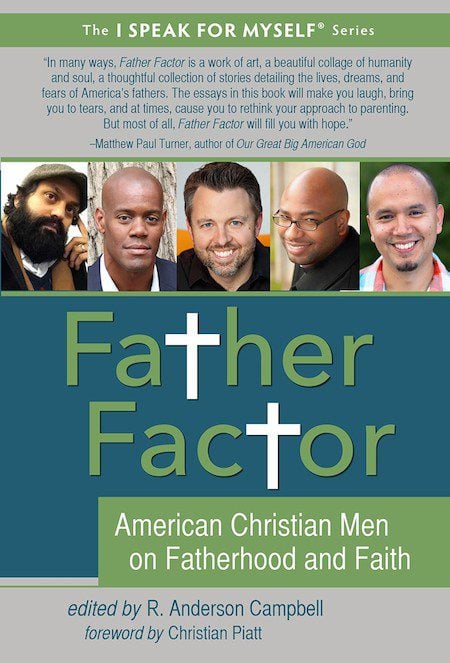 There’s a few every Sunday morning. Usually, when I look out at the congregation everything looks a little blurry, but a few faces typically stand. And while I’d love for these to be the faces of those with rapt attention, nodding along, grunting their primordial ‘amen’s!,’ these are the faces belonging to the people who have never been to a liturgical worship service before, and clearly have no idea what’s going on.
There’s a few every Sunday morning. Usually, when I look out at the congregation everything looks a little blurry, but a few faces typically stand. And while I’d love for these to be the faces of those with rapt attention, nodding along, grunting their primordial ‘amen’s!,’ these are the faces belonging to the people who have never been to a liturgical worship service before, and clearly have no idea what’s going on.
You can tell by the combined look of confusion and wonder. Its probably not unlike being new to yoga; you hear these strange words being spoken, these words which, to you don’t make any sense, but to everyone else seem to carry powerful meaning because they react to them, physically and almost, it seems, spiritually. I’ll try not to stare and smile because I understand what they’re going through. Liturgical worship is a strange, counter-cultural, and uncomfortable thing; that’s why I love it and see it as vital to the life and work of the Church. It is through liturgy that the Church can move towards its purpose of being a sacrament to the world.
That’s what we’re all about, isn’t it? We’re not simply about the building, transformative worship, egg sandwiches with crusts cut off, ladies with hats, the programs, or justice work; those things are all well and good, (even the sandwiches!) but Church, at its most basic and most complex, is bigger than that. As the German theologian Jurgen Moltmann said, the Church is about ‘opening up’ God’s future in our present. It’s there, in the community of brothers from other mothers, and sisters from other misters, that a taste of that alternative world is found. We are, in a word, sacramental; through everything we do we reveal to the world around us the world God is raising up from the ground through Christ. We’re called a ‘missional church’ because we are sent out for that purpose.
So, if that is what the church is ultimately about, the question becomes ‘how?’ How does the Church become that Body of Christ and that New Humanity Paul calls us to be. How, in other words, do we be missional?
For me, it’s all about the liturgy.
Liturgy, broadly put, (and in the vein of great liturgical theologians such as Andras Lovas, Gordon Lathrop, Dwight Vogel and Jamie Smith) is what we use in our worship to help us reach that sacramental nature. Liturgy is whatever we use to renew ourselves in God’s grace and align ourselves with Christ’s call to be Kingdom-Makers. It is, and yet is bigger than, worship; it’s what worship does.
I remember when I learned liturgy means ‘the work of the people’ and thinking ‘how cool is that?!’ Think about it. What people are we talking about? God’s people. What work? The work of becoming the kind of people God calls us to be in Christ. Liturgy is the communal work we do as God’s people to allow that Spirit we call Holy to move within us transforming us from the inside out.
Now I don’t think liturgy is exclusive to worship. There’s a good argument that doing acts of justice or sitting down for a meal with friends is a liturgical act. But by and large, when we’re talking liturgy, we’re talking worship. So let’s go there since its probably something we can all relate to.
Having had my formative years in Canadian progressive and evangelical ecclesial circles, (a bit of an ecclesial wanderer) I’ve come to appreciate the importance of a well-crafted liturgy and how it can guide and mediate our worship experience. When you find one, and open yourself up to it over a period of months, letting it sink into your bones, you better look out. It’ll influence your life in marvelously subversive ways.
Take a look at your classic worship service.
We begin with the passing of the peace. With the announcement that peace – shalom! – has been made between and amongst all things. What wonderful news! We greet one another with the peace of Christ, not only acknowledging but enacting how in Christ, all are one, and former walls, labels, and divisions no longer keep us apart but we are all equals and worthy of love and acceptance.
With the joy of that peace swirling in our hearts, what else would we want to do but worship? Thus, the call to worship. Sometimes it’s a Psalm, often a responsive statement. It is about more than declaring our intent to worship; it’s about declaring our identity and purpose. We are those who have experienced that peace in Christ, have reclaimed our identity as children of God, and have come to worship the only God there is. These are not meaningless words, but a call to centre yourself in that identity and purpose.
At this point all the heads begin to bow as we shift into an opening prayer. We ask for the Spirit of love, grace, peace, and life to be with us. We cash in on God’s promise to be present wherever we are gathered. This invocation makes what we do anointed, it’s the humble request for nourishment and renewal of the deepest kind.
Somewhere shortly after, we have the prayer of confession and assurance of grace – a combination more delicious than beer and pretzels. This is when we enter into the presence of the God we just called down, sincerely acknowledging our brokenness and seeking repentance, and doing so trusting that God’s grace is abundant and enough for all our sins. This is a bold re-enactment of our baptisms. We gather, we invoke, and we ask for the right to be in God’s presence, delighting in the grace we have proclaimed over us and embracing the chance to try again living the Way of Jesus.
Then of course, there’s the Word, the sharing of an anointed and prophetic message rooted in the faith story we receive from the Bible; this is when we realign ourselves with the story Christ has pulled us into through faith, learning what it means to live a life of faith. It is not a word of escape, but engagement; not of defeat, but one of hope. We hear our story, we own it, and let our faith-filled imaginations for what is possible take over.
And then there’s an offering, an albeit awkward but important act of offering our money, time and talents to this alternative vision we’ve pledge to be a part of in faith. In a world that is so centred on hoarding and piling up, this is where we share and spread out, doing our own part to reorder the world through the work of the church.
Then the prayers, once awesomely, and ever-so-fittingly called ‘The Long Prayer’ in a few traditions. Here we intentionally come together as one body before the God who stands for us, giving thanks by acknowledging the source of our blessings, asking for help with what burdens of our hearts, and asking for the audacity and strength to be the answers to our prayers, often ending in the prayer Jesus taught us to pray. These prayers remind us faith is not something we simply receive, but is something lived out, with others and for others.
Finally, the benediction. That time when ministers raise up their hands, their robes hanging down their arms like pterodactyl wings, and pronounces not simply a blessing, but a commission on the congregation. It proclaims and encourages: ‘You have had your faith renewed, now go and live it out.’ And we go, not alone, but together and in God’s presence, responding to grace by participating in work God created us to do.
Obviously, there’s a whole list of other things going on in worship, the sacraments being at the top of it. But this general sketch of your typical order of service reveals the missional nature of liturgy and how it shapes the transformation we experience in worship. Maybe one way to look at it is to say liturgy is a kenotic and perichoretic act; through it we go through this process of aligning our hearts toward God’s future, thereby coming to participate in the world God is making in Christ.
It’s there, through that liturgical process, that we become sacramental, and it’s in that sacramental nature, that we embody the missional nature of the church.
I’m all for confused people in worship; people who are awkwardly and wondrously feel the beginnings of the Spirit at work within them. May we all have that experience. May we let the Spirit work through these liturgies, letting these practices become habits, letting what we do in worship change what we do in our lives.
At the very least, we experience the fullness of mystery, at the very most, we help Church be the best it can be.










